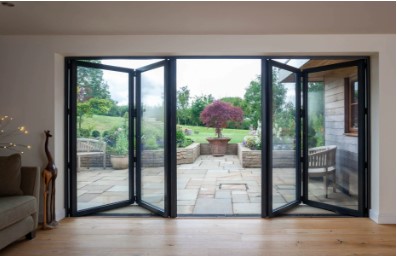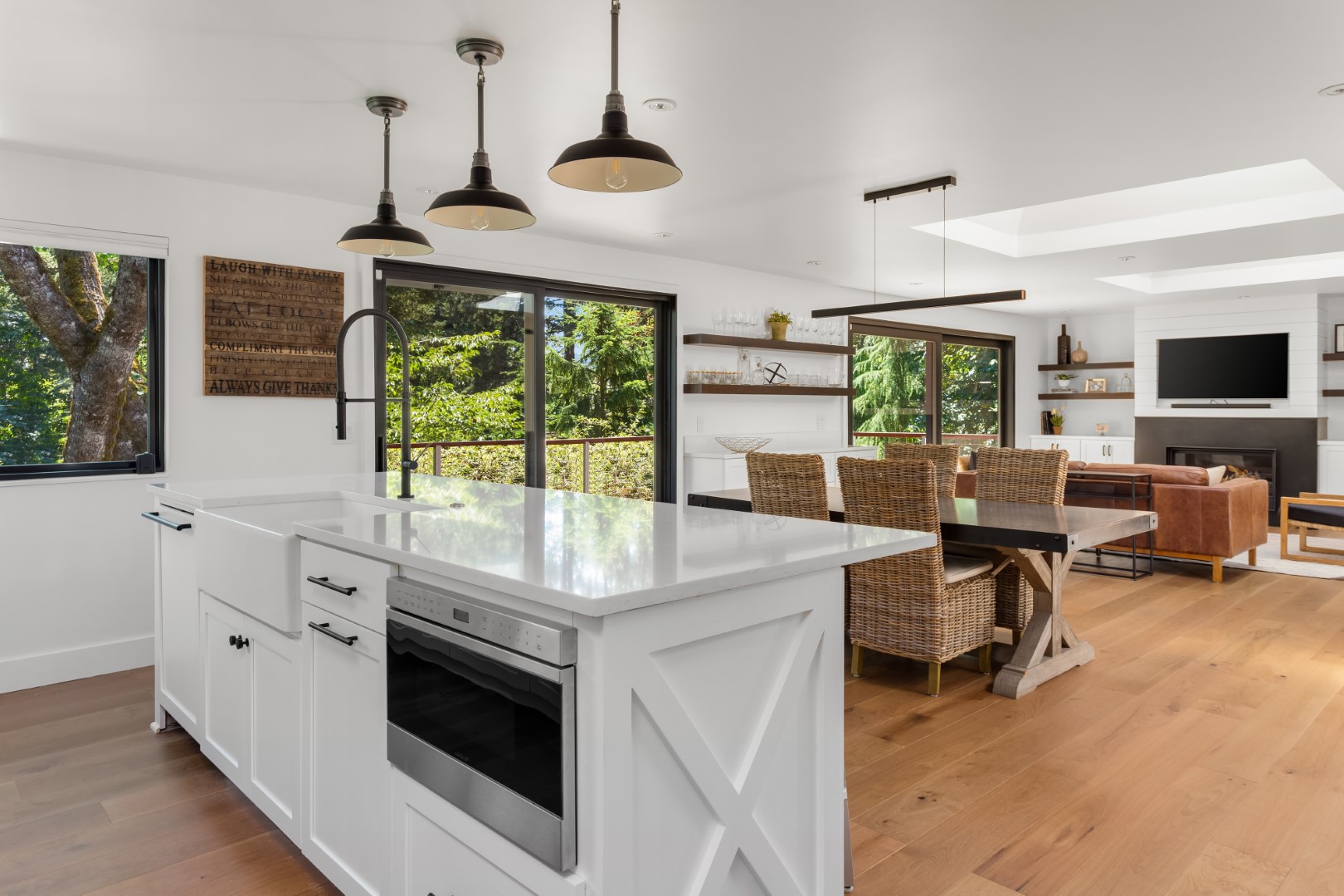Latest News
- Details
- Hits: 1172
- Details
- Hits: 574
Taking out a mortgage is likely to be the biggest financial commitment you’ll ever make, and so you'll want to find the best deal you can. The good news is there’s plenty you can do to improve your chances of getting your mortgage application accepted – follow our top 10 tips to help you get the mortgage you want
If you’re thinking about how to get a mortgage, you should be aware of the factors that affect your eligibility. These include: your credit score, length of time in current job, current debts, whether you’re self-employed and of course the size of your deposit.
Follow our top 10 tips below to find out how to get the mortgage you want.
1. Your credit score matters
Before applying for a mortgage, get a copy of your credit reportwhich is held by credit reference agencies such as Experian or Equifax. This will allow you to see what lenders see when they review your application.
If your credit rating isn’t looking that great, there are lots of simple things you can do which can give your score a boost. For example, check you are on the electoral roll and close down credit card accounts which you no longer use.
2. The starting point is your own sums
Sit down and work out your budget before applying for a mortgage. You will need to be sure you can borrow enough to cover the purchase of the property and that you’ll have enough spare to cover all the associated costs and fees.
Monthly mortgage repayments will depend on how much you want to borrow (and over how long) and the interest rate charged.
3. You’ll be better off in the same job
Lisa Brown of Acres Financial Services said; “ Most lenders will want to see that you’ve been with your employer for some time before they’ll give you a mortgage, so if you’re thinking of switching jobs, it’s a good idea to hang on until you’ve got your mortgage in place. Many lenders like to see you have been in your existing job for at least three to six months.”
4. Debts don’t help
If you’re submitting a mortgage application, the last thing any prospective lender is going to want to see is that you owe a load of cash on credit cards or you’ve got outstanding loans.
Ryan Jobbins of Acres Financial Services said " Before you apply for a mortgage, try to reduce any debts you have – this will help demonstrate that you manage your money responsibly. It will also mean you will potentially be able to borrow more when it comes to a lender’s affordability calculations. "
|
- Details
- Hits: 375
Looking for advice on how to buy a house? You’ve come to the right place.
It’s no secret that the housing market has been incredibly busy in recent months with house prices going through the roof. For buyers, it's hard to stand out, with so few properties on the market and so much competiton. There is some good news on the horizon though...
Things are starting to settle down, amid increasing inflation and rising interest rates. 11% of homes have had their price cut by more than 5% since September, according to property portal Zoopla. And more properties are now coming to the sales market.
If you're looking to move soon, we’ve compiled a helpful step-by-step guide to give you the best possible chance to secure your dream home and ensure your purchase is as stress-free as possible.
1. Save, save, save!
Look to save at least 10 to 20% of the cost of the home you would like to buy.
Top tip: remember to factor in additional costs like solicitor fees, mortgage fees, survey costs and buildings insurance. As your local property professionals, we’re always here to help support you and offer advice on moving costs.
2. Get a mortgage agreement in principle
This is an estimate of how much you could potentially borrow from a bank or building society. Bear in mind it’s not a formal mortgage offer but it means you can show agents that it’s likely you’ll be able to afford the property you want to buy.
3. Identify an up and coming area
When searching for a new home, it’s important to look beyond the four walls of the property.
One way to get ahead and make the market work for you is to find a part of town that is affordable yet offers an increasing amount of amenities due to a new demographic of people moving into the area.
According to our property expert, Chris Rosindale, the top four signs you should look out for in an up and coming area;
- Young professionals are a great indicator of potential growth. If you can spot people in their twenties and thirties choosing a specific area, it's almost inevitable that local house prices there will increase.
- New delicatessens, pubs, restaurants and independent coffee shops suggest that there is new demand in the area from people with disposable income.
- Nearby public transport links that give local residents access to schools, workplaces and central locations will inevitably attract more people to the area.
- Regeneration can greatly improve the quality of life in a specific area. Chances are if money is being pumped into a neighbourhood, the house prices there are likely to grow.
4. It's advisable to find a good agent
Our estate agents are there to make your buying process as simple and smooth as possible. They can provide you with daily updates of new properties, and if you pop down to your local office, they can give you advice and tips on the local area.
You should plan for multiple property viewings. Do your research and get to know the local market really well. If you need a little extra area advice, talk to your agent.
5. Make an offer
Once you’ve found what you’re looking for, it’s time to make an offer. Think carefully about what you would be willing to pay, if you go too low you risk not being seen as a serious buyer, so make sure your offer is realistic. Equally, don’t go in too high and miss the mark completely. Remember your estate agents will be on hand to help to support you through the offer process.
6. What happens after you’ve made an offer?
Well, this can go one of two ways. The estate agent will call you back and tell you that your offer has been accepted. In this case, it’s time to breathe a sigh of relief and move on to step 7. If not, you might want to repeat the process again with a higher offer. Again, our agents are able to do all the negotiations on your behalf.
7. Arrange a mortgage
If you need to arrange a mortgage we can help through our associated company Acres Financial Services. They can compare thousands of mortgage deals from a panel of high street and specialist lenders (subject to status and lender criteria).
8. Hire a property lawyer called a conveyancer
Once you've had your offer accepted and confirmed your mortgage, it's time to think about who you want to handle the legal side of things. A property lawyer will take charge of conducting searches, liaising with the seller’s lawyer, inspecting the seller’s documents, dealing with the Land Registry and all that fun stuff. This role is critical to keeping your house purchase on track so do your research.
9. Get a survey
Sorted your mortgage and property lawyer? Great.
It’s survey time. A survey isn’t compulsory, but it’s definitely advisable. If you don’t get one and you come across unforeseen structural issues once you’ve bought the property, it would just be hard luck. Don’t be one of those people that rely on the mortgage valuation or you might find yourself forking out thousands of pounds later down the line. Give yourself peace of mind by having a survey conducted.
The HomeFact Report, RICS HomeBuyer Survey, RICS HomeBuyer Survey & Valuation and the RICS Building Survey are your main options.
10. Arrange buildings insurance
How important is buildings insurance? Well, take this example – as soon as the contracts are exchanged, you’re legally bound to buy the property. If the building were to burn down the day before completion and you weren’t insured, you’d have to pay every penny of the sale price yourself, that's why for many lenders it's a requirement for you to have building insurance prior to completion.
11. Set the completion date
This is the date that you’ll finally move into your new home. Completion usually takes place between one and four weeks after you’ve exchanged contracts. During this time, it might be an idea to find a trustworthy removals company to help get you moving.
12. Exchange contracts and sign the transfer deeds
You’re almost there! Your deposit will now be sent to the seller’s property lawyer, along with the contracts that you signed. Your property lawyer will prepare the transfer deed. Make sure you sign it in the presence of a witness. It confirms you're willing to take ownership of the property.
Once this is complete it means you’re legally bound to purchase the house. Time to put the champagne on ice and celebrate!
13. Completion
You did it. You’re officially a new homeowner – collect the keys and let yourself in. You can now look forward to making the house a home! If you’re interested in home improvements read our latest article ‘How to REALLY boost the value of your property.'
Thank you to Barstow Eves - original post : https://rb.gy/y0vhbx
- Details
- Hits: 310
As the days grow colder and the nights draw in, it's the perfect time to turn our thoughts to creating a cosy haven at home.
As we prepare to turn on our heating but monitor our energy usage, we have focused on clever ways to keep our homes feeling even snugger this autumn season. With so many choices on you can certainly ramp up the cosy factor with some cost effective choices, and transform your home into the perfect sanctuary.
Rugs can be simple yet impactful
Rugs are a firm favourite, whether you have hard floors or carpet – they can instantly add warmth and a feeling of comfort. A brightly coloured or textured rug can act like a piece of 'floor art' and give a room real personality and a focal point. Layering rugs is also an option for a feeling of deep pile sensuality underfoot. Rugs are really versatile and can work in every room, and you can play with large and smaller sizes to suit your style and budget. With thousands of rugs to choose from you are bound to find your perfect one.
Add warmth with lighting
As the daylight fades and the darker evening draw in we rely more and more on artificial lighting. Our lighting works harder in the autumn as it needs to illuminate our space as well as creating the right atmosphere. Having a mix of light providers, either floor, desk or wall is a great way to be able to dial up and dial down a room's ambience depending on your needs. Light bulbs also play a key role, so selecting the correct wattage for the light can be another way to add extra warmth to your room.
Comforting colours and textures
Colour and materials can instantly change the feel of a room, and adding pops of warmth with cushions and throws can be really cost effective. If you are feeling brave you can mix and match or you can keep the overall look neutral so as not to distract from your rooms' decor. Throws are really versatile and can be used to snuggle under on colder evenings, or can be artfully draped over furniture during the day to add personality to your space.
Cosy curtains
Curtains not only provide privacy and frame our windows, they also play a role in keeping the heat inside our homes – preventing it leaking out of our windows. Thermal curtains and blinds can really help solve this problem and can reportedly reduce heat loss by up to 25%. They can also work on internal doors, preventing heat loss to porches, hallways and conservatories.
Create a sleepy sanctuary
Seasonal changes always prompt us to re-think our bedding. Swapping to a higher tog duvet and flannelette sheets help us all get more cosy and achieve the perfect nights sleep. By adding extra layers with warm blankets and throws it means you can add more or take them away so that you are the perfect temperature as you drift off.
Article courtesy of https://www.bairstoweves.co.uk/blog/market-update/get-cosy-for-autumn/?utm_source=Newsletter&utm_medium=Email&utm_campaign=octobernews&utm_content=ufurnish-cosy-autumn-F4#/
- Details
- Hits: 368
|
|
|
|
|
|
|
|
|
|
|
|
|


















